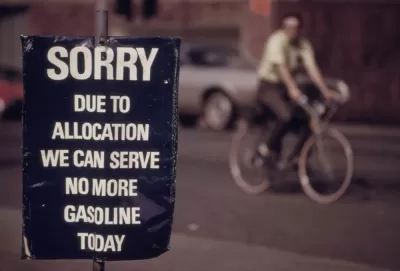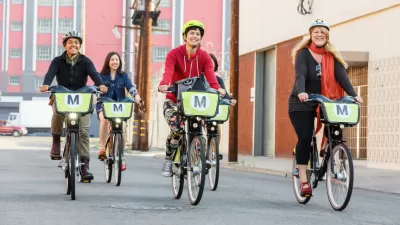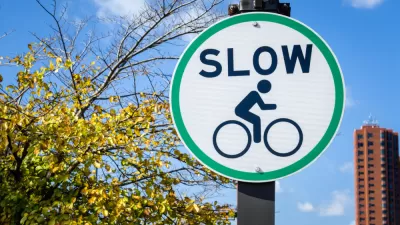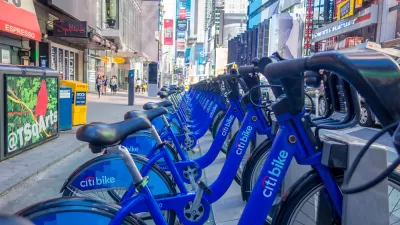Back when baby boomers were in their late 20s and early 30s, they drove a bike boom. It is now largely forgotten.

"US bicycle sales, which had been rolling along at 6 million a year, shot up to 9 million in 1971, 14 million in 1972 and 15.3 million the following year, according to a Bank of America report," Carlton Reid writes in an excerpt of his new book for the Guardian.
The book, Bike Boom: The Unexpected Resurgence of Cycling, documents the unexpected surge in popularity of biking in the 1970s. The story of the boom is not just about a jump in sales; it was also a time of political action. The 1970s saw a number of pedal ins and bike ins—where advocates and politicians of both parties addressed bikers. According to Reid, "[i]n 1973, 252 bicycle-oriented bills were introduced in 42 states. The Federal-Aid Highway Act of the same year provided $120m for bikeways over three years." The boom turned to bust in the mid-70s, as fashions changed along with demographics. By 1975, Reid contends the bike "turned out to be the Hula Hoop of the 1970s."
FULL STORY: Pedal-ins and car burials: what happened to America's forgotten 1970s cycle boom?

Planetizen Federal Action Tracker
A weekly monitor of how Trump’s orders and actions are impacting planners and planning in America.

Congressman Proposes Bill to Rename DC Metro “Trump Train”
The Make Autorail Great Again Act would withhold federal funding to the system until the Washington Metropolitan Area Transit Authority (WMATA), rebrands as the Washington Metropolitan Authority for Greater Access (WMAGA).

DARTSpace Platform Streamlines Dallas TOD Application Process
The Dallas transit agency hopes a shorter permitting timeline will boost transit-oriented development around rail stations.

San Francisco's School District Spent $105M To Build Affordable Housing for Teachers — And That's Just the Beginning
SFUSD joins a growing list of school districts using their land holdings to address housing affordability challenges faced by their own employees.

Car-Centric LA Suburb Looks to a Train-Oriented Future
City leaders in Rancho Cucamonga, the future western terminus of the Brightline West rail line to Las Vegas, want to reimagine the city as a transit-oriented, pedestrian-friendly community.

New Alaska Bitcoin Mine Would Burn as Much Energy as the State’s Largest Coal Plant
Fueled by “stranded” natural gas, the startup hopes to become the largest in the US, and to make Alaska an industry center.
Urban Design for Planners 1: Software Tools
This six-course series explores essential urban design concepts using open source software and equips planners with the tools they need to participate fully in the urban design process.
Planning for Universal Design
Learn the tools for implementing Universal Design in planning regulations.
Municipality of Princeton
Roanoke Valley-Alleghany Regional Commission
City of Mt Shasta
City of Camden Redevelopment Agency
City of Astoria
Transportation Research & Education Center (TREC) at Portland State University
US High Speed Rail Association
City of Camden Redevelopment Agency
Municipality of Princeton (NJ)





























